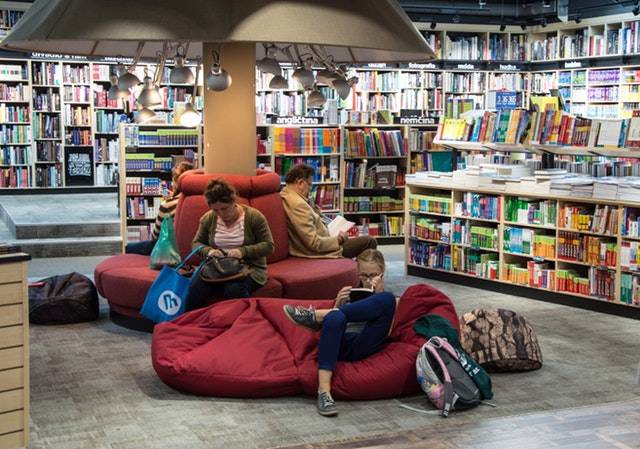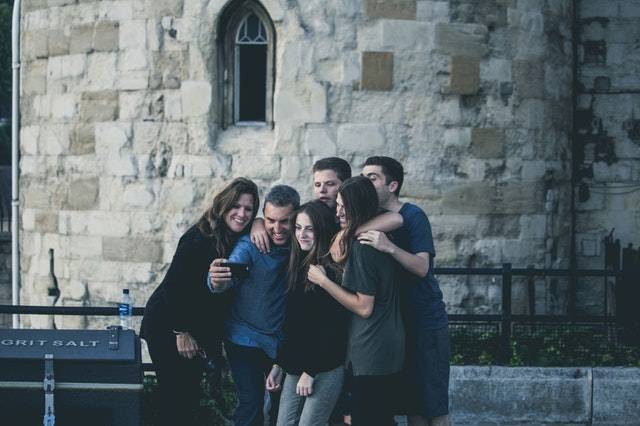Education is the passport to the future, for tomorrow belongs to those who prepare for it today. Malcolm X
Graduating from high school and progressing to a great college or university is something that most young people look forward to. Apart from the difference it makes to one’s career path, the college also presents more freedom and room for creativity than all the other academic levels below it.
Every year, millions of students sit for their high school exams and some make it to college while the rest, depending on their country, have to choose another path. In the United States alone, over 20.6 million students are expected to start college in fall 2018. Of course, for most of them, college means lots of partying, drugs and sleepovers. That and the student loans that will hang over their heads like dark clouds in the Amazon for a long time.
Nonetheless, acquiring higher education can change your life in a lot of ways, in most cases permanently. Major impacts include:
Preparation for the job market
The primary role of higher education is to equip students with the skills, knowledge, and competencies that they need to advance in their chosen careers. Indeed, many students join college will nary a clue as to how demanding their fields of specialization may be in terms of time and effort. In high school, everyone wants to take a glamorous course that promises lots of money and fame.

It is, however, in college that young people face the realities of their prospective career and unsurprisingly, some drop out when things get too tough. Those that continue with their courses gain valuable practical skills and mental strength that help them fit and survive in the cutthroat job market.
Self-confidence
A person who has gone through the higher education system is relatively more confident in their personal, social and professional endeavors. A key aspect of human interaction – communication skills – are further developed in college, and an equipped graduate is more confident when addressing people or communicating with workmates and superiors.
Further, getting a college degree is seen as a huge achievement in most countries and people who achieve that are generally filled with great personal pride and sense of achievement. This translates to improved self-esteem and confidence which, in turn, leads to improved productivity at work and in personal relationships.
Wages and salaries
Despite all the disappointments, frustrations and early mornings that it brings, education is in itself an investment that pays dividends over a lifetime. In most industries, college graduates are regarded as more knowledgeable and skilled and attract higher salaries and wages than semi-skilled workers.
In 2017, for instance, college graduates in the United States earned an average of $42,000 through the year before taxes. Average pre-tax income for non-graduates was $14,000, more than 60% lower.

The improved earnings mean that beneficiaries can pay back all the debt incurred during their college lives within a few years of graduation. Similarly, unemployment rates among university graduates are negligible compared to those for dropouts or high school graduates.
Health
People who are lucky to attend college learn a lot of things to do with health and living a healthier life, whether in class, from schoolmates or research. Compared to people who ended their schooling in high school, graduates are more informed on various illnesses and best health practices. Matter of fact, quite a number of universities offer courses on HIV/AIDS and cancer which cover prevention and management methods.
Among university graduates aged between 25 and 34, 85% exercise at least thrice a week while only 60% of people without post-secondary education do so. Considering the advantages of exercising, it’s safe to say that we can significantly reduce the instances of lifestyle diseases such as diabetes, cancer, and heart-attacks by widening access to higher education.
Personal development
Not everything you learn in college has to do with your career or profession. Some skills and competencies gained can make you a better and happier person overall. These include critical thinking skills that enable you to analyze issues and make logical decisions objectively.
College also equips students with more practical survival skills from having to perpetually live on a shoestring budget. They are, thus, able to find solutions when they face similar financial problems later in life.

Another important competency gained from college is meeting deadlines. School assignments and projects normally come with strict deadlines and guidelines, and students have to figure out how to meet them.
Suffice to say, a large number of all professional tasks have deadlines too. Last but not least, it is in college that most people get to be proficient computer users. Indeed, most of the college graduates we know can comfortably create a basic WordPress site, and they definitely didn’t learn that in high school.
Interactions and exchange of ideas
In high school, the majority of students is from the same area or region, and typically they have the same mindsets. Colleges, on the other hand, bring together thousands of students from different states or regions and increasingly, different countries. An ordinary state university or college is, therefore, a melting pot of cultures, beliefs, and opinions. By constantly interacting and living with people from different cultures, one develops fresh perspectives and ideas. Some people even learn new languages just by interacting with foreigners while in college. As such, college graduates are much adaptive to the globalized world of today and their experiences with peers from other countries and cultures can be a plus when they travel overseas on work assignments.
Socializing and forming friendships
In relation to the point above, people who go through several years of college have relatively better social skills than those who don’t. This is because it’s next to impossible to not socialize while in college. What with the constant group assignments and tasks that require one to not only socialize with classmates but work together as a team.

Additionally, as we like to say, before dating sites there were colleges. We all know a couple or two that met in college, survived through the (few) good and (mostly) bad and broke times of college life and later got married – Barack and Michelle Obama are a great example. In the same breath, most of us have friends and accomplices we met while in college and who have been positive influences on our lives ever since. A great example of college buddies who went on to achieve success together is Mark Zuckerberg and Eduardo Saverin, the guys behind social media juggernaut Facebook.
Conclusion
Many people are pursuing higher education today than ever before. However, contrary to popular belief, education is not all about helping us make money. It also comes with other additional benefits as discussed above which add happiness, confidence, and satisfaction to our lives in a way that money alone can’t. So, if you’re contemplating whether to pursue that degree or not, we’re here to tell you that you have so much to gain.
Having considered all the benefits of higher education, do you think that it can have a negative impact on your life? How? Let us know in the comments.


